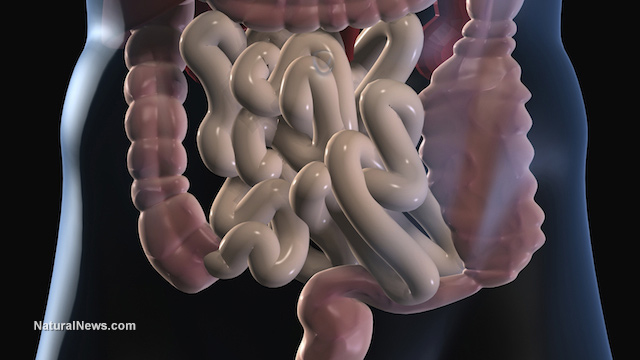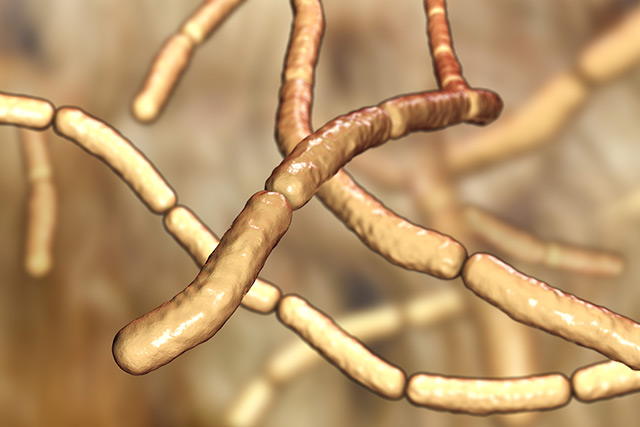Research finds that repeated mild food poisoning can trigger chronic disease
09/09/2018 / By Michelle Simmons

Repeated mild food poisoning or small bacterial infections that are overlooked and are easily cleared by the body without treatment can accumulate and result to chronic inflammation and potentially life-threatening colitis, according to a long-term study.
A group of scientists conducted the study for eight years to determine the origin of chronic inflammatory diseases, such as colitis and inflammatory bowel disease (IBD). Jamey Marth, leader of the study, explained that determining the origin of a disease is essential because it suggests “more rational and effective preventions and treatments.”
They started with a different hypothesis which revealed multiple hints. Initially, they observed that the genetic makeup of a person has only a small responsibility in the emergence of common inflammatory diseases like colitis and IBD, which suggests that these diseases could be caused by unknown environmental factors. Next, they saw that studies from other laboratories had shown that seasonal bacterial infections in humans were linked with increased cases of IBD.
With all of their observations, they hypothesized that repeated low-grade bacterial infections may be a cause of chronic inflammation. Then, the team created a model of mild human food poisoning with the use of healthy mice that were given a very small amount of Salmonella typhimurium so that there were no severe symptoms or death and all of the bacteria were eliminated by the mice. Salmonella is a common bacterial pathogen that is rampant throughout the environment and is a leading cause of human food-borne illness and disease.
“We observed the onset of a progressive and irreversible inflammatory disease caused by previous infections. That was quite surprising because the pathogen had been easily cleared by the host,” said Won Ho Yang, lead author of the study.
The inflammation continuously increased and colitis was now observed in all subjects by the fourth infection. However, the disease did not progress regardless of the end of recurrent infections. This suggests that the damage was already done. The researchers found an environmental and pathogenic origin of chronic intestinal inflammation in the course of modeling human food poisoning as it recurs over time.
“Remarkably, Salmonella have figured out a way to disrupt a previously unknown protective mechanism in the gut that normally prevents intestinal inflammation,” Marth said.
It was associated to an acquired deficiency of intestinal alkaline phosphatase (IAP), an enzyme made in the duodenum of the small intestine. IAP is essential as it eliminates phosphates from molecules including the pro-inflammatory lipopolysaccharide (LPS), which is made by different resident bacteria in the gut, thus transforming LPS to become nontoxic. Salmonella infection increased the activity of neuraminidase in the small intestine, which in turn boosted the molecular aging and turnover of IAP. This leads to IAP deficiency in the intestine.
“Food contamination at these low bacterial levels is likely to be more common than we recognize, while symptoms could be nonexistent or mild and disappear in a day or two without treatment. Repeated over time, we find that such minor infections are sufficient to trigger disease months and perhaps years later, depending upon the number and timing of infections an individual has experienced over his or her lifetime.”
Ways to improve gut health
There is increasing evidence that shows how important having good gut health is for a person’s overall health. It has been linked to different medical conditions. An unhealthy gut can affect a person’s weight, mood, and mental well-being. Fortunately, there are ways to improve your gut health. These include eating more vegetables, focusing on fiber-rich foods, consuming a lot of prebiotic- and probiotic-rich foods, reducing alcohol intake, and avoiding processed, fatty, and sugary foods.
Read more stories on gut health and diet at Nutrients.news.
Sources include:
Tagged Under: chronic disease, colitis, digestion, digestive health, digestive system, disease causes, disease prevention, enzyme deficiency, food borne illness, food poisoning, gut bacteria, gut health, IBD, inflammation, intestinal inflammation, intestines, probiotics, Salmonella, stomach




















